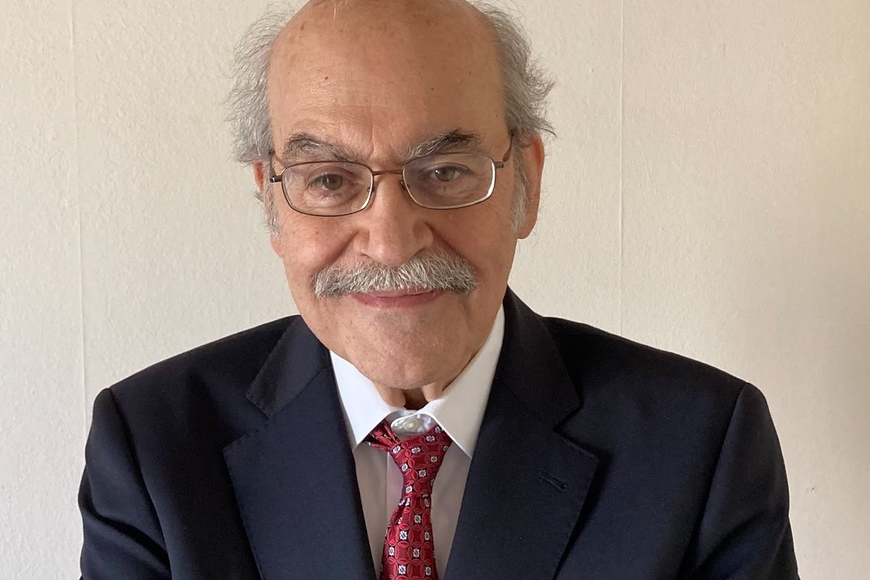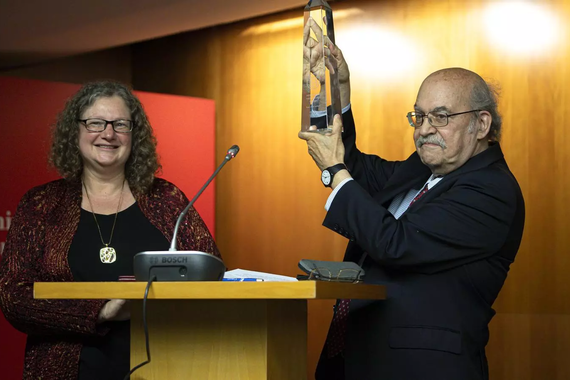Distinguished Alum Andreu Mas-Colell to Receive UMN Outstanding Achievement Award
On June 26, 2024, the University of Minnesota will confer the Outstanding Achievement Award on Andreu Mas-Colell, an honor reserved for the University’s most distinguished graduates.
Andreu Mas-Colell earned his PhD in cconomics at Minnesota in 1972. He has made fundamental contributions in mathematical economics, work that is being recognized through this award. The award ceremony will be held at the Ciutadella Campus of the Universitat Pompeu Fabra, whose department of economics and finance is one of four academic institutions that constitute the Barcelona School of Economics (BSE). Andreu collaborated in the creation of the Universitat Pompeu Fabra, and he founded the BSE; these achievements and his institution building more broadly are being recognized through the award. Andreu is also being honored for his impact on graduate education in economics, through his teaching and mentoring of students and his co-authorship of the world’s leading graduate economics textbook.
Andreu entered the University of Minnesota PhD program in economics in the fall of 1968. He was one of the first recipients of the Andreas Fellowship that Professor Walter Heller had managed to set up with the sponsorship of Dwayne Andreas of Archer Daniels Midland for students from Spain interested in pursuing a PhD in economics. The Andreas Fellowship subsequently sponsored the studies of a large number of Spanish economists at Minnesota up until the mid-1990s. During his time at Minnesota, Andreu was influenced by Hugo Sonnenschein, then an assistant professor, and he finished his degree under the thesis supervision of Marcel Kessel (Ket) Richter in 1972. He then took a position as an assistant research economist at the University of California, Berkeley. In 1975 he became an assistant professor in both the Department of Cconomics and the Department of Mathematics and then moved rapidly up the ranks, becoming a full professor in both departments in 1979. He moved to Harvard in 1981.
Much of Andreu’s research deals with general equilibrium theory. General equilibrium theory traces its roots to Leon Walras in the 1870s, but it was revolutionized by the work of economists like Kenneth Arrow and Gerard Debreu in the 1950s, who used mathematical tools from topology like Brouwer’s fixed point theorem, which had been introduced into economics by the great mathematician John von Neumann, to prove that the system of equations generated by a general equilibrium model had a solution, an economic equilibrium. For a time, economic theorists then neglected the mathematical tools they had traditionally used, like differential calculus, to use the tools they found in topology. In the early 1970s, however, several economists, led by Gerard Debreu, recognized that much could be gained from applying tools from differential topology, which combines calculus with topology, to general equilibrium analysis. Andreu showed up at Berkeley, where Debreu was his senior colleague, just in time to become a leader in this movement. Andreu also realized that the same mathematical tools could be used in cooperative game theory. In cooperative games, economic agents—rather than competing against each other as in noncooperative games—can cooperate, which often leads to outcomes where they all are made better off than they would have been by competing. Much of Andreu’s success at institution building has been based on searching for such cooperative outcomes among members of academic institutions.
While he was on an upward trajectory in the United States, Andreu chose to return to Catalonia in 1995 to help build the new Universitat Pompeu Fabra University into what is now, by many measures, the best university in Spain and one of the best in Europe. Even at Harvard, he had been active in founding the Pompeu Fabra starting in 1990. In the early 2000s, frustrated by infighting among competing educational and research institutions in economics in Barcelona, he built a partnership among them in the form of what is now the Barcelona School of Economics. The BSE model for fostering a cooperative equilibrium among competing academic institutions has served as a model not only in economics, where the Paris School of Economics and the Toulouse School of Economics serve as two prominent examples, but in the experimental sciences. Andreu now serves as the chair of the board of the Barcelona Institute of Science and Technology, an institution of scientific cooperation, multidisciplinary research, and graduate education comprising seven Catalan research centers in experimental science.
Andreu has had an outstanding career as a teacher of economics and a supervisor of graduate student research in economics. With his colleagues at Harvard University, Michael Winston and Jerry Green, he compiled a set of lecture notes teaching microeconomic theory to generations of first-year Harvard PhD students. This group included the University of Minnesota’s executive vice president and provost, Rachel Croson, who will preside over Andreu’s award ceremony in Barcelona this coming June. In 1995, Andreu, Michael, and Jerry published these notes as the 981-page textbook Microeconomic Theory which is now the most widely used textbook in graduate education in economics around the world. As a doctoral thesis supervisor, Andreu has trained a number of students who went on to influential careers. Two current faculty members of the University of Minnesota’s department of economics are students of Andreu: Larry Jones and myself.
The high regard in which we at the University of Minnesota hold Andreu is widespread in the economics profession. He has a remarkably long and impressive list of professional honors, starting with honorary doctoral degrees from five universities in the United States, Europe, and Latin America. Andreu is one of the most highly regarded economists in the world. He has received extensive international recognition for these and other achievements that reflects well not only on him, but also on his alma mater, the University of Minnesota.



